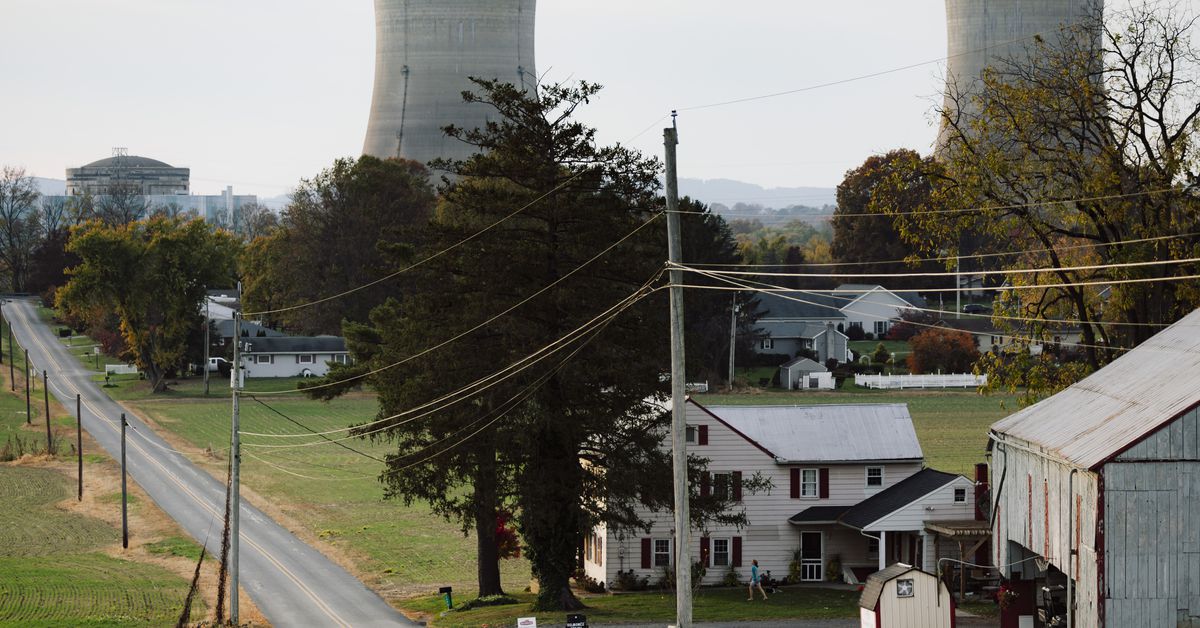Major Nuclear Energy Contract Announced by General Services Administration
The General Services Administration (GSA), which manages government buildings, has recently announced a significant nuclear energy contract. This development comes in the wake of several major tech companies making substantial nuclear energy deals last year.
Details of the Contract
The 10-year, $840 million contract is for 10 million megawatt-hours of electricity, which the GSA states is equivalent to what’s needed for more than 1 million homes annually. The agency awarded the contract to Constellation, which operates the nation’s largest nuclear fleet and has recently announced an agreement with Microsoft to restart a nuclear reactor at Three Mile Island.
Nuclear Energy Proportions
According to Constellation spokesperson Paul Adams, nuclear energy makes up about 4 million megawatt-hours of the GSA deal. This highlights the significant role that nuclear energy plays in the contract.
Growing Demand for Nuclear Energy from Silicon Valley
Silicon Valley is increasingly turning to nuclear energy to satisfy electricity demand from AI data centers. The federal government, being the nation’s single largest energy consumer, makes this contract a substantial boon to the nuclear industry.
Shift in Perception of Nuclear Energy
"This agreement is another powerful example of how things have changed," said Joe Dominguez, Constellation president and CEO, in a press release. "Frustratingly, nuclear energy was excluded from many corporate and government sustainable energy procurements. Not anymore. This agreement is another powerful example of how things have changed."
Constellation’s Commitment to Nuclear Energy
Constellation says it generates 10 percent of the nation’s carbon pollution-free energy. A majority of its output comes from nuclear energy, but it also produces hydro, wind, and solar power. Additionally, the company generates electricity from gas-fired power plants, although Constellation has set a goal of reaching 100 percent carbon-free electricity by 2040, compared to close to 90 percent today.
Sources of Electricity in the Contract
Constellation and the GSA declined to answer questions about how much of the electricity included in the contract will come from each source aside from nuclear power plants. However, it is clear that this contract represents a significant commitment to nuclear energy.
The Largest Energy Procurement Contract in GSA History
Altogether, it’s the biggest energy procurement contract the GSA has signed in its history. "This historic procurement locks in a cost-competitive, reliable supply of nuclear energy," said GSA administrator Robin Carnahan in a press release. "We’re demonstrating how the federal government can join major corporate clean energy buyers in spurring new nuclear energy capacity and ensuring a reliable, affordable supply of clean energy for everyone."
Contract Benefits
The contract will allow Constellation to extend licenses for existing nuclear power plants as well as invest in new equipment and technology that should result in 135 megawatts of additional capacity. The GSA agreed to purchase 2.4 million megawatt-hours of electricity from that added capacity over 10 years.
Broader Impact
Outside of GSA buildings, the deal also extends to 13 other agencies, including the departments of Veterans Affairs and Transportation as well as the Federal Bureau of Prisons, the National Park Service, the Social Security Administration, and the US Mint. The GSA is framing this contract as a way to lock in more affordable prices as data centers drive up electricity demand and increase competition for limited clean energy sources.
Data Centers’ Growing Demand for Electricity
In the face of uncertainty over future electricity prices and increasing electricity demand from data centers and AI facilities, for instance, this contract provides federal agencies with budgetary stability and protections from future price increases by keeping their electricity costs fixed for 10 years. At the same time, it continues to bolster the domestic nuclear industry.
Growing Trend in Nuclear Energy Deals
Google, Meta, Amazon, and Microsoft have all inked splashy nuclear energy deals over the past year. In September of last year, Microsoft and Constellation announced a plan to restart a shuttered reactor at Three Mile Island in Pennsylvania, the site of the worst nuclear energy accident in US history.
Biden Administration’s Commitment to Nuclear Energy
The Biden administration has also made nuclear energy a key part of its plan to transition the US away from fossil fuels to energy sources that don’t cause climate change. Last October, the Department of Energy announced a $1.52 billion loan to help restart a retired nuclear generating station in Covert Township, Michigan.
Historical Significance
While President-elect Donald Trump plans to undo progress made toward clean energy, the Trump campaign agenda included efforts to "support nuclear energy production." This contract marks an important milestone in the shift towards greater recognition of nuclear energy’s role in addressing climate change and meeting growing electricity demand.
Conclusion
The GSA’s recent announcement represents a significant step forward for the nuclear industry. As more companies turn to nuclear energy, this contract demonstrates the government’s commitment to supporting reliable, affordable clean energy sources. With this deal, Constellation will be able to extend licenses for existing nuclear power plants and invest in new equipment and technology to boost capacity by 135 megawatts. This will provide a steady supply of electricity to federal agencies over the next decade, while also promoting growth within the domestic nuclear industry.
As we move forward, it’s clear that nuclear energy will play an increasingly important role in meeting our growing demand for clean energy. With this contract, the US is taking another step towards ensuring a reliable and sustainable energy future.





